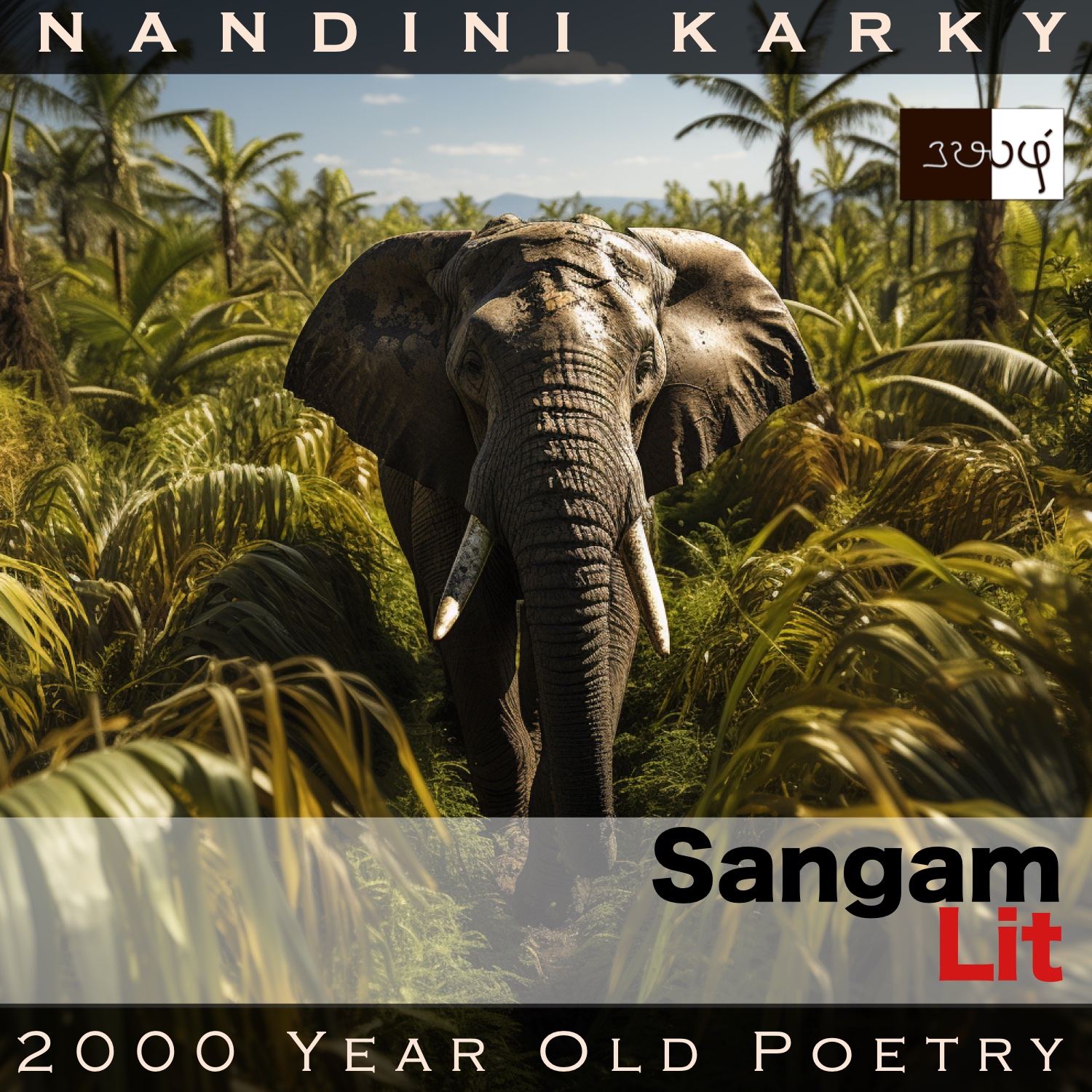Podcast: Play in new window | Download
Subscribe: Apple Podcasts | Spotify | Amazon Music | Android | iHeartRadio | TuneIn | RSS | More
In this episode, we receive insights about the right kind of taxation, as portrayed in Sangam Literary work, Puranaanooru 184, penned about the Pandya King Arivudai Nambi by the poet Pisiraanthaiyaar. The verse is situated in the category of ‘Paadaan Thinai’ or ‘Praise’ and renders words of advice to this king.

காய் நெல் அறுத்துக் கவளம் கொளினே,
மா நிறைவு இல்லதும், பல் நாட்கு ஆகும்;
நூறு செறு ஆயினும், தமித்துப் புக்கு உணினே,
வாய் புகுவதனினும் கால் பெரிது கெடுக்கும்;
அறிவுடை வேந்தன் நெறி அறிந்து கொளினே,
கோடி யாத்து, நாடு பெரிது நந்தும்;
மெல்லியன் கிழவன் ஆகி, வைகலும்
வரிசை அறியாக் கல்லென் சுற்றமொடு,
பரிவு தப எடுக்கும் பிண்டம் நச்சின்,
யானை புக்க புலம் போல,
தானும் உண்ணான், உலகமும் கெடுமே.
Although all the scholars seem to categorise this verse as ‘Praise of a patron’, it has more characteristics pertaining to ‘Pothuviyal Thinai’ or ‘Common Themes’. The reason scholars have chosen the former category of ‘Praise’ is because a particular king is being sung to, and he happens to be the Pandya King Arivudai Nambi, who was the contemporary of the Chozha king Koperunchozhan, the personal favourite of this poet. The poet’s words can be translated as follows:
“If ripe paddy on a fraction of a field is harvested and made into balls of food, then it would last for many days; Whereas, even if it’s a hundred fields, if the elephant were to enter on its own to eat, rather than what enters its mouth, that which perishes at its feet will be greater. If a wise king collects righteously, then yielding millions, the country will prosper; But if a senseless person becomes the leader, surrounds himself all the time with a loud company who do not know what’s right and wrong, and consequently he desires things taken by force without kindness, akin to that field into which an elephant entered, he shan’t gain anything and the world will be ruined too!”
Let’s delve into these words of wisdom. The poet starts by talking about a tiny paddy field, from which paddy is patiently harvested and then made into balls of food so as to be granted to an elephant. He says if this were the case, then even that minuscule field would be enough to feed the giant for many, many days. On the other hand, even if there are a hundred fields and you let the elephant loose there, then more than what the animal eats, what falls to ruin beneath its feet will be greater, says this poet. After imprinting this contrasting truth, the poet says if a king is wise and collects taxes from his people knowing the right measure, then millions he would earn and his country too would flourish. On the other hand, if this king is kind of foolish and only keeps company of those who agree with him, who do not know the measure of things, and in these circumstances, if he were to collect copious amounts of taxes by force from his people, then exactly like that field where the elephant entered for a meal, the king will not attain enough, and in the process, his country will be doomed too.
In a nutshell, the poet is advising the king not to senselessly collect disproportionate taxes by brute force but to be wise and collect only what’s appropriate for the circumstances. While this verse provides a relatable and simple truth in the fields of economics and governance, I would like to turn to another subtle point mentioned here, about the kind of advisors around a leader. No matter how powerful this leader may be, the people around them, their advisors should not stand in awe but counsel with wisdom, says this verse. While it’s tempting for leaders to choose people who agree with them all the time, great things happen when their unwise actions are challenged by those close to them, and the right course of action is pointed out. If followed everywhere, this is something that’s sure to make the world flourish like that field, which an elephant has no cause to enter!




Share your thoughts...